Josip Perkusic, 1st Croatian UN Youth Delegate: Not all Dark for Cro Youth
August 30, 2022 - The election of a youth delegate to the United Nations is foreseen by the act by which Croatia, as a member state of the UN, adopted the content accepted by the World Program of Action for Youth from 1995.
As Poslovni writes, for the first time in 2020, the procedure for selecting youth representatives took place at that largest international organisation. Josip Perkušić, a 24-year-old law student from Split at the time, was chosen for this role from a number of applicants for the previous two years.
It's worth the effort
These days, it will be exactly two years since his election to the position of the youth delegate of the Republic of Croatia at the UN, and the mandate, as Perkušić says, was quite intense. At that moment, he was in the process of writing his graduation thesis on the topic of the UN, and he was also active as a student representative and the Split-Dalmatia County Youth Council, where he was the president until last year.
It was these references that were sought in the public invitation, and they even led him to attend the 76th session of the General Assembly in New York.
"The event that I especially remember is the opportunity to participate in the session of the General Assembly in the main hall of the United Nations in New York. I remember that constructed feeling that young people are an equally important and equal part of 21st century society and that it is worth fighting for a place at the table, so that the voice of young people is heard and accepted, if it is supported by quality arguments", Perkušić pointed out.
His work with young people, before the election as a youth delegate, was an opportunity for him to connect with them and understand how the system works and the representation of young people at the regional level, the representation of their rights at county bodies in areas that are close to young people, but also the organization of events with frequent topics with the aim of public speaking and canvassing for the purpose of solving problems.
Not everything is so dark
It is precisely these experiences that enable him to speak today without hesitation about the position of young people in Croatia, and one of the most pressing problems, we learn in a conversation with a youth delegate, is the problem of emigration, which is especially relevant during crises.
Problems that intersect with emigration are also problems of housing and the lack of qualified jobs. However, not everything is so dark, and as Perkušić adds, many young people who went abroad for education tend to return, and this is exactly where our opportunity lies.
"This is precisely our greatest opportunity as a country, to succeed in bringing together all these young, educated people, to provide them with quality conditions for work, so that they can work on strategic and key issues of national interest," Perkušić said.
However, in his mandate, he mostly advocated for the promotion of the global Sustainable Development Goals (SDGs) that were adopted by the United Nations, all with the desire that international decision-makers will soon make decisions with strong effects.
"Apart from the SDGs, during my mandate I tried to spread rational optimism in every public or direct performance, because that is exactly what we all need as young individuals, but also for society as a whole, and at the same time influencing young people to develop individually as well as to be as competitive as possible and ready for personal career challenges, but also to help our community with their expertise", continued the UN youth delegate Josip Perkušić.
From the first day of the youth delegate's duties, the cooperation with the competent State Office for Demography and Youth and State Secretary Željka Josić, Perkušić points out, was highly commendable.
"They supported me all the time in the realisation of the ideas I had, but also in daily cooperation in order to prepare as well as possible for conferences that were held at the national level or in the distribution of information for events at the international level.
At a time when it is not popular to speak positively about state employees, I would like to single out one more sentence and thank and praise all the employees of the state office with whom I cooperated and at the same time express my desire for future quality cooperation, regardless of what form it takes", pointed out the youth delegate Perkušić.
Continue being active
Perkušić would like to continue working in the field of youth in the coming years, but not speculating in what position that would be. He believes that it will be easier for his successor or successors in the future, and this is because a formal channel of communication has already been established, as well as a defined program and goals of his work.
"Like every other responsible alumnus of an association, I will always be available for whatever is needed in the work, so that they can continue to represent our country in the United Nations as well as possible", concluded Josip Perkušić.
For more, make sure to check out our dedicated Politics section.
United Nations Selects Croatian Agrivi's Innovation as Best in Agriculture
September the 29th, 2021 - The Croatian Agrivi company has had its agriculture innovation recognised, praised, and chosen as the very best by no less than the United Nations (UN).
As Poslovni Dnevnik/Lucija Spiljak writes, with software such as that created by the Croatian Agrivi company, farmers can work to successfully reduce risks and increase their overall yields while simultaneously increasing their product quality and creating additional savings.
Back in July this year, the Croatian Agrivi agritech (agricultural technology) company was among the 27 impressive finalists of the Digital Excellence in Agriculture in Europe and Central Asia competition organised by the Food and Agriculture Organisation of the United Nations (UN) from which it returned home as the winner in the Agricultural Innovation Systems and Sustainable Agriculture - Related Systems farm management category.
"I'm proud that Agrivi has once again been recognised as an innovative technological solution that contributes to the long-term sustainability of agricultural production, not only in Croatia, but on global scale. This award is yet another confirmation of the efficiency and quality of Agrivi's software, which brings numerous benefits to farmers and consumers in the long run.
With software such as that created by Agrivi, farmers reduce risks and increase their yields while increasing their product quality and creating savings. On the other hand, the implementation of this software in production ensures the constant control of the production process, which enables traceability, so that consumers have a completely transparent insight into the production process of the food they're consuming. This is no longer our future, but the present,'' said the founder and director of the Croatian Agrivi company, Matija Zulj, adding that he hopes that in the coming period, an increasing number of producers will begin to digitise their production.
For more on Croatian inventions, companies and innovation, make sure to check out Made in Croatia.
President Milanović: "I think Serbian President Vučić is Proud of His Wartime Role"
ZAGREB, 22 Sept, 2021 - Croatian President Zoran Milanović reiterated in New York on Tuesday that his current Serbian counterpart, Aleksandar Vučić, had incited to war and that he was probably proud of that.
In a talk at Columbia University on Monday, Milanović said Vučić had been a warmonger, which set off a storm in Serbia.
"You can't ignore which roles some people had in our region in the last 30 years. Blood was spilt, there was arson, killing, and some people incited to that," he told the press on Tuesday, adding that "Croatia has gentlemanly let it go but won't bury its head in the sand as many in Serbia are doing."
"I think Vučić was proud of what he was doing. This is something that should be said from time to time, especially when someone... sends on a daily basis his political holograms, spokesmen and agitators to say on his behalf whatever pops into their heads. That's dirty and methodologically cheap," Milanović said.
Vučić said on Monday that Milanović was saying such things about him, "shallow and low insults", because Croatia is jealous of Serbia's economic success. He said Milanović was bothered by the fact that this year Serbia would surpass Croatia in GDP "by a 300 to 600 million euro margin."
"Serbia has a bigger total GDP even than Luxembourg. But Croatia's and Serbia's GDPs per capita are not even close. Serbia is much closer to Albania there," said Vučić. "In terms of general development, Serbia is not at Croatia's level. Life in Croatia is better and richer than in Serbia by all parametres."
Friendly talk on Bosnia with Erdogan
Milanović spoke to the press after meeting with Turkish President Recep Tayyip Erdogan, saying they had a friendly talk on Bosnia and Herzegovina.
"What I say in public, I say at such meetings," he said, adding that Turkey's foreign and defence ministers were also at the "quite open and very pleasant" meeting.
"What I underlined to Mr Erdogan is that there is no one in Croatia who will throw around stories that Mostar and Herzegovina will separate, which we hear from some others about some other parts of Bosnia and Herzegovina. And that's not smart nor necessary. In Croatia, no one advocates such a policy and such outcomes nor thinks that," Milanović said.
While in New York, he was to have met with UN Secretary-General Antonio Gutteres, but the meeting was cancelled because Milanović had more important commitments.
That wasn't even supposed to be a meeting but a photo op and a five-minute talk, Milanović said. "At that moment, I assessed that I had something more productive, an informal meeting concerning the region, state business."
For more about politics in Croatia, follow TCN's dedicated page
Friends of Croatia: UNICEF - Croatia an Example to the World When it Comes to Breastfeeding
May 27, 2021 - The sixth article in the "Friends of Croatia: UNICEF" series explores the work of the UNICEF Office for Croatia. What is done regarding children's rights in Croatia, positives, and negatives, and how can you help if you want to?
To ensure that our world even stays the same, let alone improves, new generations are essential. But, before they grow old enough to participate in society, society must first take care of the youngest ones to grow and develop. Society must ensure for kids that they grow up in families filled with love, make sure that kids can go to school, that they are healthy, safe from violence, that they are not hungry or thirsty, and give them overall opportunity to make it in the world.
Basically, children have rights, and they are in more detail elaborated in 54 articles. For more details, have a look at the Convention on the Rights of the Child that came to power on September 2, 1990, by the United Nations (UN) General Assembly.
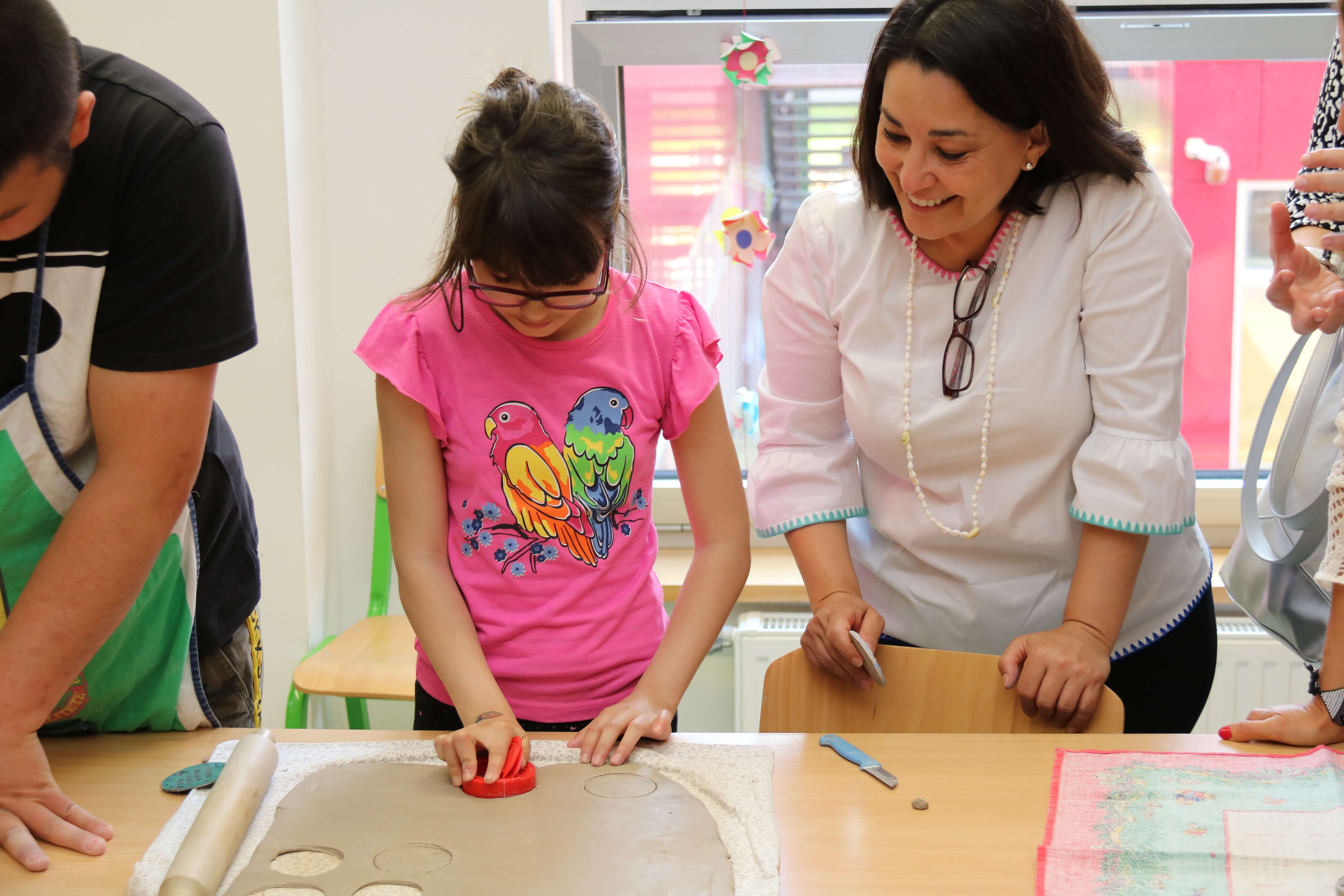
Regina M. Castillo, UNICEF office for Croatia representative with children with disabilities in Centre Tomislav Špoljar in Varaždin © Marin Ilej/UNICEF
The UN is dedicated to seeing this Convention is being respected, and United Nations International Children's Emergency Fund, commonly known as UNICEF, specializes in the issues of children's rights. Established in the aftermath of World War II, UNICEF has been at the frontlines of humanitarian crises, armed conflict, and natural disasters.
„Undeterred by the scale of the crises, we rise to the challenge, reimagine what is possible and respond by helping millions of children survive and thrive. Our on-the-ground expertise has reached more than 191 countries and territories, through committed partnerships and a passion for innovation“, says UNICEF on its official website.
Croatia signed and agreed with the Convention, and UNICEF today has its own office in Zagreb. Furthermore, it's worth noting that UNICEF has existed for 75 years, and despite firstly coming to Croatian territory while the country was part of the former Socialist Federal Republic of Yugoslavia, UNICEF has been with Croatia since the organization was established.
„Many people do not know that UNICEF helped to eradicate malaria in Croatia and that UNICEF played a key role in the development of modern dairy. Dairies were built in Zagreb, Rijeka, and Split, and factories for the production of powder milk in Osijek and Županja. Milk was distributed in schools, and for many children, it was their only meal during the day“, says Regina M. Castillo, UNICEF Office for Croatia representative.
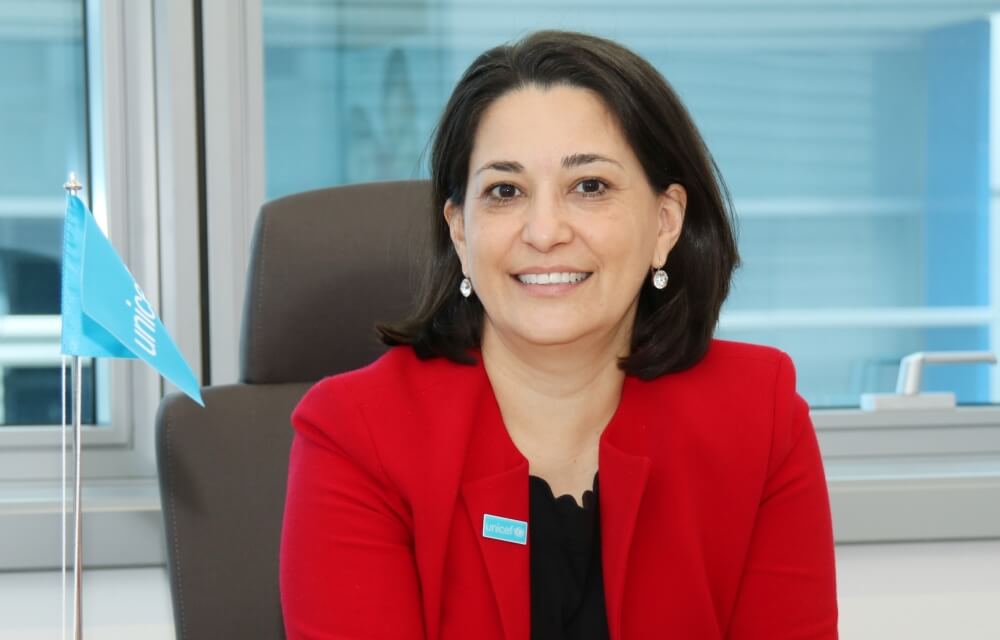
Regina M. Castillo, UNICEF office for Croatia representative © Marin Ilej/UNICEF
The UNICEF representative is elected for a five-year mandate, and Regina M. Castillo came to her function in Croatia in 2019. Her career in the UN started in 2001 and was in charge of economic and social questions in the Executive Office of the UN chief secretary Kofi Annan in New York. This was followed by Castilla moving to work in the mutual program for HIV/AIDS, known as UNAIDS. She was first the director of private sector partnerships in Geneva (2006-2012) and then moved to be the director for Bolivia, Ecuador, and Peru (2012-2015). She majored in International relations and public politics.
Born in Nicaragua, she first started her career in the 1990s as a diplomat, and she was also the headmistress for international trade in the Nicaraguan Trading Ministry.
Helping Croatia before it was cool (or an independent country)
Castillo went on to continue that after World War 2, UNICEF fed six million children every day, which included many children in Croatia.
„One of those children was our dear colleague, prof. Josip Grgurić, who is still working tirelessly for the youngest. He still remembers the yellow cheese that was part of UNICEF's humanitarian package for families, as well as the chocolate that he then tasted for the first time. He later worked at the children's hospital in Klaićeva, which UNICEF helped found, and he still works hard on UNICEF’s Child-Friendly Hospital Initiative“, says Castillo indicating how valuable but also inspiring UNICEF can be to children. Castillo added that in the Homeland War, UNICEF was the first organization on the ground, making sure that children and families received the necessary psychosocial support and humanitarian packages. After the war, they educated children on how to protect themselves from landmines.
Today Croatia developed, joined NATO and EU, and is a modern European country. With such progress, there have been many improvements in respect to children and their rights.
„Croatia has a low mortality rate of children under the age of five, extremely low stunted growth rate due to inadequate nutrition in the first years of life and the enrolment rate of children in primary school is almost 100 per cent“, pointed out Castillo.
„Croatia is an example in the world when it comes to the promotion of breastfeeding. It is rare that all public maternity wards in a country have the status of 'Child-Friendly Hospital'. With the support of UNICEF, partners have organized a network of breastfeeding support groups, and now we have more than 200 support groups in Croatia“, added Castillo on what the world can look up to this small South-Eastern European country.
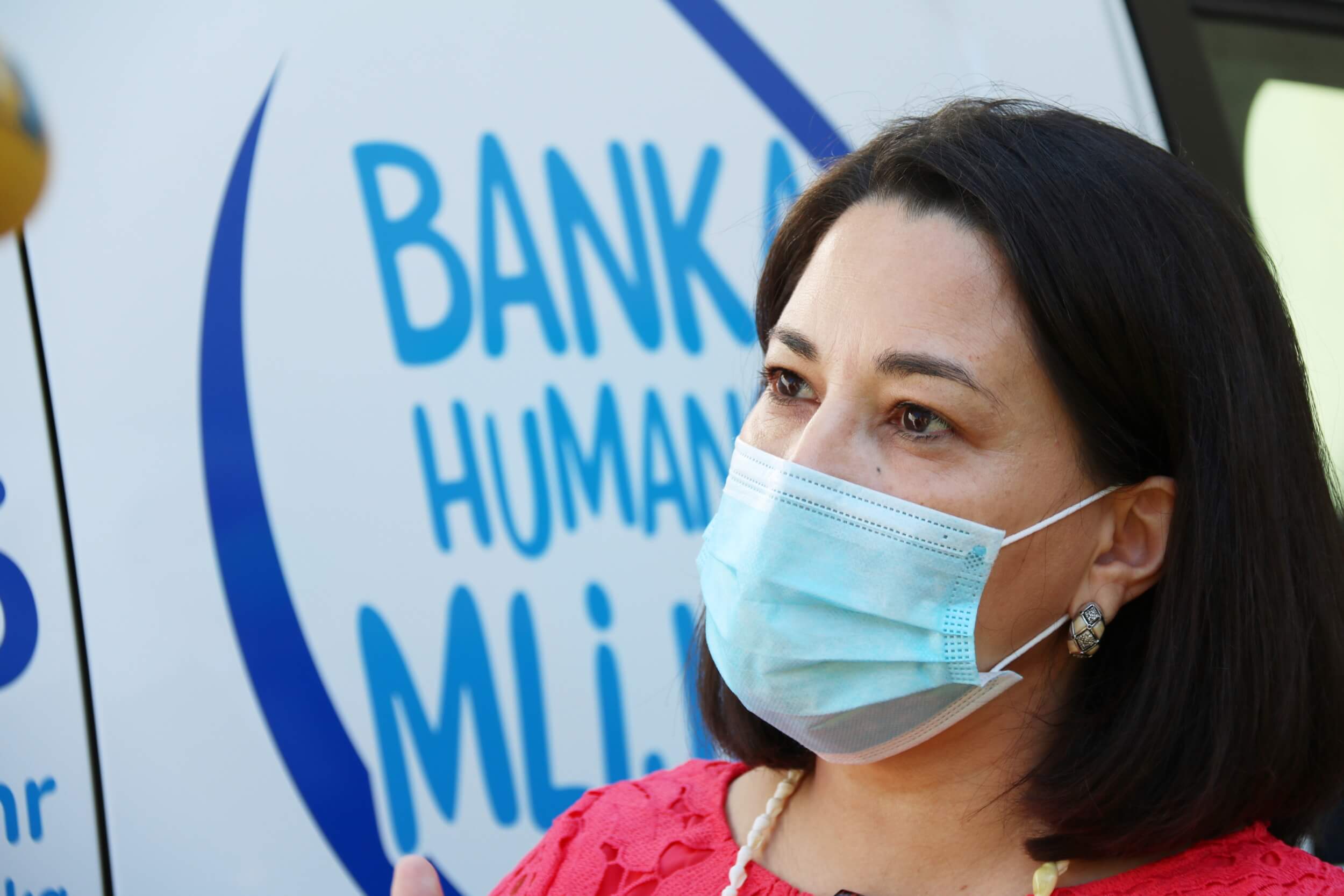
Regina M. Castillo at Human milk bank © Marin Ilej/UNICEF
Still, there are some issues Croatia needs to address and are far from ideal at the moment.
„There are still differences when it comes to access to services for children, depending on where they live and the conditions in which they grow up. Children with disabilities, as well as children from the poorest families, especially in rural areas, often do not have the opportunity to attend kindergarten and do not have the same access to specialized health services and therapies as children in urban areas. The focus of UNICEF in Croatia is on the most marginalized children: children with disabilities or developmental delays, children growing up without adequate parental care, children from minority groups, children at the risk of poverty and exclusion. UNICEF’s programs are focused on the well-being and protection of every child, with a special focus on the most vulnerable children“, pointed out Castillo.
Campaigns and programmes such as “Every child needs a family”, “The first three are the most important”, and “Stop violence among children” are perhaps the most known public action by UNICEF in Croatia, but returning to the good practices of breastfeeding, Castillo emphasizes the establishment of the Human Milk Bank in her current mandate.
„Thanks to the Human Milk Bank, prematurely born and seriously ill newborns (who do not have access to their own mother's milk) can receive milk donated by other mothers. We continually work on reducing the risk of disasters, support the development of quality foster care and provide support to parents in the upbringing and care of children through workshops and we work a lot with young people“, said Castillo.
In general, UNICEF has different types of offices in countries, and regarding the Croatian office, it’s a Country Office. In other words, most of the resources (human and financial) are invested in programs in Croatia. Castillo says that the five-year mandates have priorities that are determined in cooperation with partners. And while 80 percent of the funds raised are invested in programs for girls and boys in Croatia, there are funds and support programs for children outside of the country.
“For example, in 2018, UNICEF supported child health care in parts of Ukraine affected by the conflict and helped the building of five inclusive children's playgrounds in two refugee camps in Jordan in cooperation with the Ministry of Foreign and European Affairs in 2019. Through the ‘Schools for Africa’ program , which includes many kindergartens and schools throughout Croatia, UNICEF supports the education of girls and boys in Madagascar", Castillo listed several examples.

Regina M. Castillo, UNICEF office for Croatia representative with children on Media Literacy days press conference with Radovan Fuchs Minister of Science and Education, Krešimir Partl, State Secretary at Ministry of culture and media and Robert Tomljenović, Deputy Director of the Council for Electronic Media © Marin Ilej/UNICEF
Overall, the UNICEF Office for Croatia works closely with the Croatian Government, and most notably, with the Ministries of Social Welfare, Education, Health, and the Ministry of Foreign and European Affairs. Other partners also include experts (Croatian experts, but also building on expertise and good practice from all over the world), professional associations, academia, services providers, and NGOs.
“UNICEF’s goal is to connect all stakeholders and to advocate and support systemic change for the well-being of all children. System change is a gradual process, and it can be challenging, but when it comes to children’s rights, every step forward is well worth the effort”, explained Castillo.
Croatian citizens showing support for UNICEF
On one hand, Croatia is a good country with low mortality rates of kids and a role model for breastfeeding promotions. On the other hand, however, peer to peer violence (on whose suppression the aforementioned “Stop violence among children“ campaign works heavily on), and unequal approach to education between rural and urban areas show Croatia has both its ups and downs. Unfortunately. The downside sometimes overshadows all the positive things.
One such instance was the tragic death of a two-year-old girl from Nova Gradiška on Easter Sunday. The death of a severely injured girl, who was brought to Zagreb's children's hospital after suffering abuse and heavy beating from her biological parents (and from whom the girl was taken and given to a foster family but was then returned back to biological parents), sparked controversy and citizens outrage, culminating in changes in social welfare law, as well as sacks and investigations in the welfare center in Nova Gradiška.
„We are deeply saddened by the tragic death of two-and-a-half-year-old Nikoll on Easter Sunday. There are no words to express the pain of such a terrible event. Unfortunately, there are no simple and quick solutions to prevent violence against children. For years, UNICEF in Croatia has been continuously and persistently working in the field of child protection, educating experts from the social welfare system, but also other experts who work with children and families, such as experts from the health care, education, and justice systems. UNICEF implements various support programs for parents, and it is fully committed to the development of foster care and the improvement of the legislative framework. However, UNICEF is also aware that society as a whole, has a long way to go to achieve the goal that every girl and every boy is guaranteed the best possible care and protection. UNICEF will continue to work actively, persistently, and dedicatedly with all partners to achieve it”, commented Castillo.
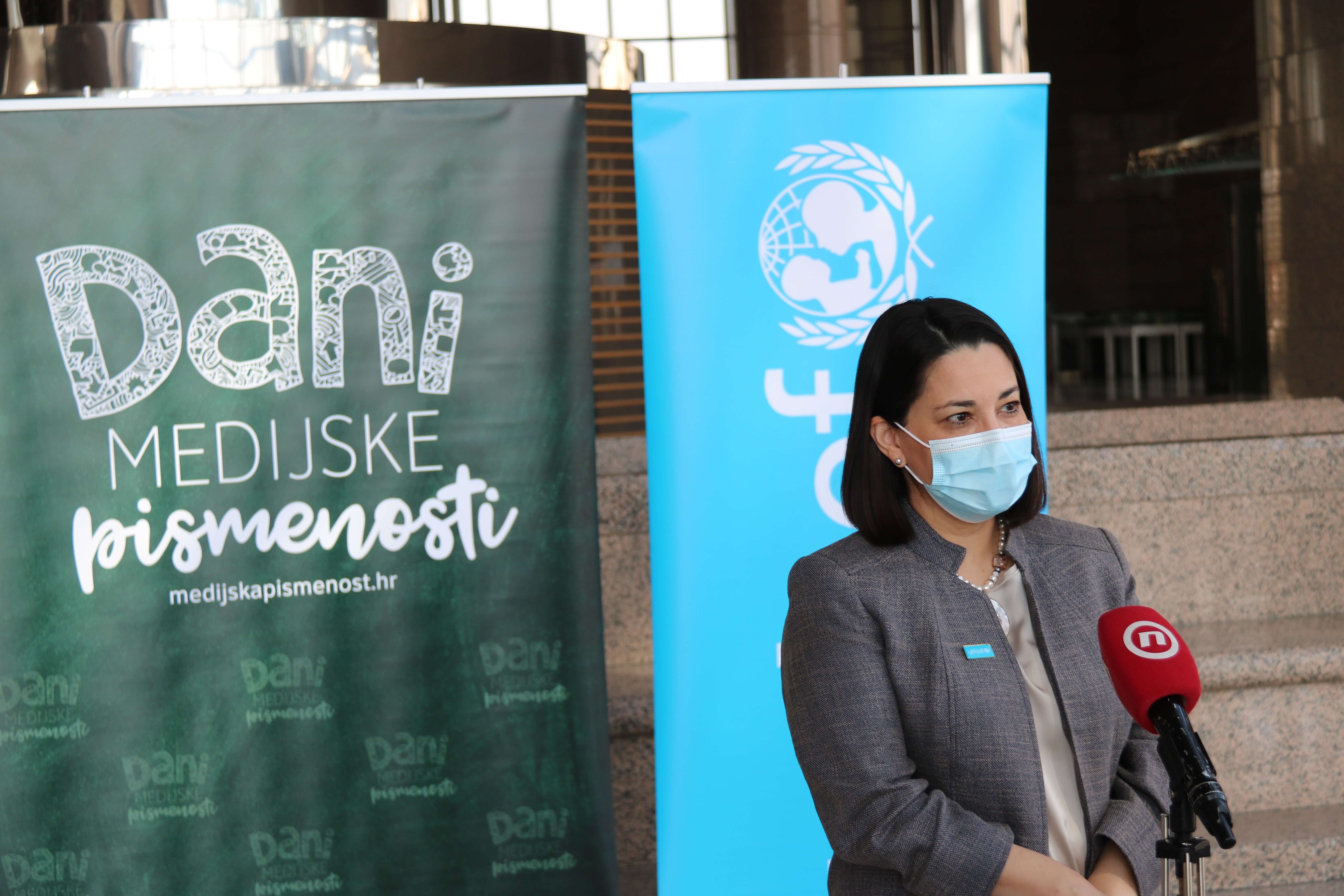
Regina M. Castillo talking on Media Literacy days press conference © Marin Ilej/UNICEF
However, Croatians recognize the importance of the UNICEF mission. Before Covid, UNICEF annually collaborated with the Museum of Illusions on the Museum of Reality exhibition which displayed the problems children faced worldwide, but which also showed what changes and solutions UNICEF brought to those areas.
“Experience tells us that citizens are ready to support the youngest, in Croatia and beyond. Implementation of our programs would not be possible without the support from citizens and companies that placed the focus of their CSR activities precisely on children. We especially value the support from our Childhood Guardians, donors who support our work with regular monthly donations and allow us to regularly conduct our programs for boys and girls, as well as react quickly with much-needed assistance in crisis situations like the earthquakes in Croatia and the COVID-19 pandemic that affected all families. UNICEF is always in the field with the most vulnerable children and their families”, notes Castillo.
In the end is important to note, that while children are recognised as a particularly vulnerable group, all human rights apply equally to children.
“All the rights enshrined in the Convention apply to every child, regardless of a child’s country of origin, gender, religion, and nationality. Every child, by birth, has all his/her rights, the right to grow up in a safe environment, to have a family, to have access to health care and education, to be able to play and develop his/her interests and reach his/her full potential”, concludes Castillo.
The five-year mandate is an agreement that sets priorities in advance, so Castillo warned that there is no opportunity for making donations outside of that framework. UNICEF office occasionally does get messages from citizens who need advice or help on issues outside of that frame, but nevertheless, UNICEF can offer them help by referring them to institutions and addresses that can offer citizens the necessary support, financial support, or information.
With expertise mentioned several times throughout this story as the insurance of delivering the best solutions to issues children face, UNICEF is always on the lookout for new people. If you want to make a change in the world while earning a fair wage yourself, check out what expertise UNICEF is looking for right now.
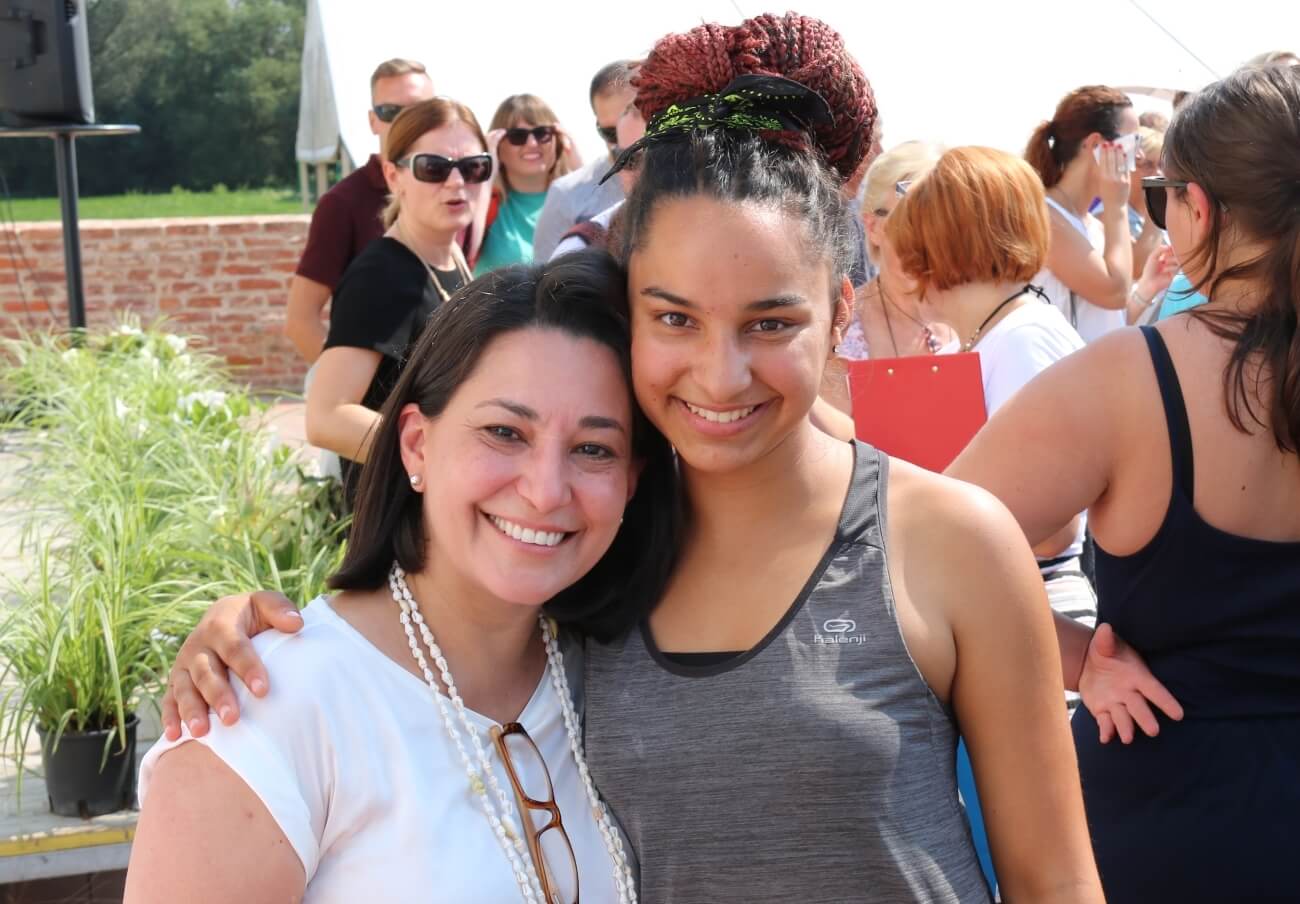
Regina M. Castillo on a foster family gathering © Marin Ilej/UNICEF
UNICEF Croatian Office is situated on Radnička cesta 41/7. To inform the public of their work, they built a considerable presence on Facebook, Twitter, Instagram, Youtube, and Linkedin. You can also find all UNICEF-related info for Croatia on their official website, and contact them via mail: This email address is being protected from spambots. You need JavaScript enabled to view it. or on phone numbers: +385 1 2442 660 and +385 1 2442 661. You can use the website to donate to a cause in Croatia too. Additionally, there are numbers: +385 1 4095 855, +385 99 2692 196, and +385 91 621 1039 for more details on donating to Croatia as well as e-mail address This email address is being protected from spambots. You need JavaScript enabled to view it.. You can also leave a donation to UNICEF in your will, and a phone number +385 1 3031 640 specializes for the issue in Croatia. If you find yourself in Croatia and you want to volunteer for UNICEF, more info can be found by sending a mail to This email address is being protected from spambots. You need JavaScript enabled to view it. and on phone number +385 1 3031 646.
And of course, you can donate for a good cause to UNICEF for any action the fund is internationally involved in.
To read more from the series "Friends of Croatia", follow TCN's dedicated page.
For more about UNICEF in Croatia, follow TCN's dedicated page.
Croatia Marks 29 Years of UN Membership
ZAGREB, 22 May 2021 - Croatia is marking the 29th anniversary of joining the United Nations, which occurred on 22 May 1992 and is considered the culmination of the international recognition process and the crowning achievement of Croatian independence and statehood, the Foreign Ministry said on Saturday.
The first years of membership were marked by diplomatic efforts to bring the military aggression against Croatia to an end and then to ensure the peaceful reintegration of occupied territories and full territorial integrity and sovereignty, followed by affirmation on the world's political scene.
As a young state, Croatia succeeded in ensuring relatively quickly its participation in the work of all key UN bodies through membership of the Security Council and the Human Rights Council, and several times of the Economic and Social Council and the Peacebuilding Commission.
Croatia is an active participant in many important processes, from the UN reform, including the work of the General Assembly and the model for the election of the secretary-general, the adoption of the UN 2030 Agenda for Sustainable Development, to the recent coordination of global efforts in dealing with all aspects of the COVID-19 pandemic.
Croatia intends to continue contributing to UN activity, from the keeping of international peace and security and the strengthening of international law, to the promotion of international cooperation in dealing with economic, social, cultural and humanitarian challenges, including the protection of human rights and fundamental freedoms, the ministry said.
All that is confirmed by Croatia's current applications for membership of the Economic and Social Council (2022-24), the Peacebuilding Commission (2026-27), the Security Council (2030-31) and the Human Rights Council (2032-34).
For more about politics in Croatia, follow TCN's dedicated page.


